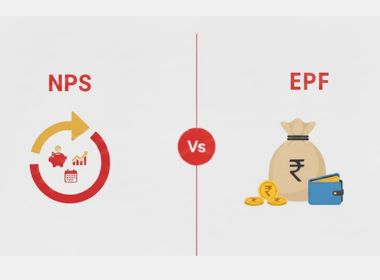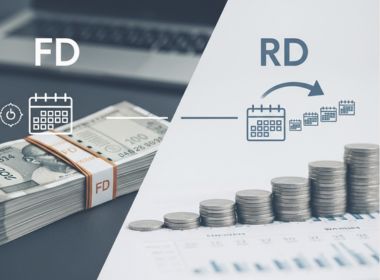Search Suggestions
- Gold Loan
- Money Transfer
- Mutual Funds

Zero vs Negative CIBIL Score: What’s the Difference and Why It Matters?
A CIBIL credit score is considered a reflection of your financial health. This score is calculated by CIBIL, a leading credit rating agency, based on your repayment history and financial behaviour. To determine the creditworthiness & eligibility for loans lenders usually use this score.
Table of Content
- Difference Between a Zero (0) and Negative (-1) CIBIL Score
- How Are Credit Scores Determined?
- How to Improve Your CIBIL Credit Score?
- Conclusion
The CIBIL credit score is a three-digit number ranging between 300 and 900. However, it is also possible to have a no or negative CIBIL score. To better understand this system, let’s explore how the scoring process works and what having a negative CIBIL score signifies.
Difference Between a Zero (0) and Negative (-1) CIBIL Score
A 0 CIBIL score, also known as NA, indicates that an individual’s credit history is less than six months old. In this case, the credit bureau lacks sufficient data to calculate a score, typically because some credit activity has occurred but not enough to establish a full credit profile.
In contrast, a CIBIL score minus 1 labelled as -1 or NH, means there is no credit history at all. This can happen if someone has never taken a loan or opened a credit account. Additionally, a negative score may occur if there has been no credit activity for at least two consecutive years. In rare cases, it can result from errors in the credit report.
Get Your Free CIBIL Score Online
How Are Credit Scores Determined?
CIBIL evaluates several factors when calculating credit scores. Each aspect of your credit behaviour is assigned a specific weightage, as outlined below:
- Repayment History (30%): This is the most significant factor and reflects how consistently you repay your loan EMIs and credit card bills. Timely payments positively impact your score.
- Credit Exposure (25%): This includes the total credit amount you have taken and the outstanding balances on those accounts. A good balance between credit utilization and available credit is important.
- Credit Type and Duration (25%): This considers the age of your credit history and the types of credit products in your portfolio, such as secured or unsecured loans and credit cards.
- Other Factors (20%): This includes the number of active credit cards, existing loans, and recent credit-related inquiries. A high number of inquiries in a short period can negatively affect your score.
Suggested Read: How is Credit Score Calculated, its Importance and How to Improve It?
How to Improve Your CIBIL Credit Score?
Your CIBIL credit score is essential for loan or credit card approval. This score reflects your credit history, including past loans and repayment behaviour. A low credit score signals poor creditworthiness, while a high score demonstrates financial responsibility and reliability.
If you’re starting from scratch, here are some effective strategies on how to increase your CIBIL score from 0:
Regularly Monitor Your CIBIL Credit Report
It’s important to check your CIBIL score or credit report periodically, as it contains two critical pieces of information that directly impact your credit score.
Firstly, it highlights any late payments or defaults associated with your previous loans or credit cards, which can negatively affect your score. Secondly, reviewing your report allows you to identify inaccuracies, such as incorrect defaults or delayed payments. If you spot any errors, you can contact your bank and CIBIL to rectify them, which can positively influence your credit score.
Suggested Read:How to Read CIBIL Report - A Step-by-Step Process
Avoid Applying for Multiple Loans Simultaneously
Submitting multiple loan or credit card applications at the same time can create the impression that you’re overly reliant on credit. This behaviour signals potential financial instability and can harm your credit score.
Repay Your Debts on Time
To improve your CIBIL credit score it is important to timely repay loans and credit card bills. Consistency in meeting repayment deadlines demonstrates financial discipline and boosts your score. Conversely, missed or delayed payments can significantly reduce your score, making it harder to qualify for future credit.
Conclusion
A poor or nonexistent CIBIL credit score can make obtaining loans challenging, but with the right approach, it’s possible to improve it. Begin by using credit responsibly, paying all bills on time, and frequently check your credit or CIBIL score to address any discrepancies.
Get Your Free CIBIL Score Online
Consider options like secured credit cards or credit-building products to demonstrate sound credit management. With consistent effort and patience, you can build a b CIBIL credit score, unlocking better financial opportunities in the future.
- Insurance
- Group Insurance
- Health Insurance
- Home Insurance
- Vehicle Insurance
- Life Insurance
- Travel Insurance
- Shop Insurance
CATEGORIES
OUR SERVICES
-

Credit Score
-

Gold Loan
-

Personal Loan
-

Cibil Score
-

Vehicle Loan
-

Small Business Loan
-

Money Transfer
-

Insurance
-

Mutual Funds
-

SME Loan
-

Corporate Loan
-

NCD
-

PAN Card
-

NPS
-

Custom Offers
-

Digital & Cashless
-

Milligram Rewards
-

Bank Mapping
-

Housing Finance
-

#Big Business Loan
-

#Gold Loan Mela
-

#Kholiye Khushiyon Ki Tijori
-

#Gold Loan At Home
-

#Sunherisoch
RECENT POSTS

What is a Digital Wallet: Meaning, Types, Examples & Benefits
Know More
What is Refinancing: Meaning, Types, Benefits & Examples
Know More
What Is a Debt Trap? Meaning, Causes & How to Avoid It
Know More
Gold Price Forecast 2026: Will Gold Prices Rise or Fall?
Know More
What Is Capital Gains Tax in India? Meaning, Types & Tax Rates
Know More
Best Index Funds to Invest in India in 2026
Know More
Understanding Gold Bees: How it Works, Net Asset Value, Returns and More
Know More
Multi Cap and Flexi Cap Mutual Funds: How Are They Different?
Know More
Online Personal Loan vs. Offline Personal Loan - Which Is Better for You?
Know More
10 Tips to Improve Chances of Personal Loan Approval
Know MoreFIN SHORTS

What Is a Gold Loan and Who Should Consider It?
Know More
How Does a Gold Loan Work? A Simple Step-by-Step Guide
Know More
How to Link Your Mobile Number with PAN Card Step-by-Step Guide
Know More
Is a PAN Card Mandatory for a Gold Loan? Rules Explained
Know More
Can You Have Multiple Personal Loans at the Same Time?
Know More
Why Is Gold Sustaining Near ₹1.5 Lakh? Key Reasons Explained
Know More
The Best 7 SIF Funds of 2026: A Better Way to Invest
Know More
Gold Price Hits ₹1,40,000: How It Impacts Gold Loan Amounts
Know More
How to Check Loan Number: Step-by-Step Process
Know More
How to Open an SIP Account: Online and Offline Process
Know More
How Do I Apply for MSME Certification Online in India?
Know More
7 Important Reasons to Choose Hallmark Gold When Buying Jewellery
Know More- South +91 99469 01212
- North 1800 313 1212





